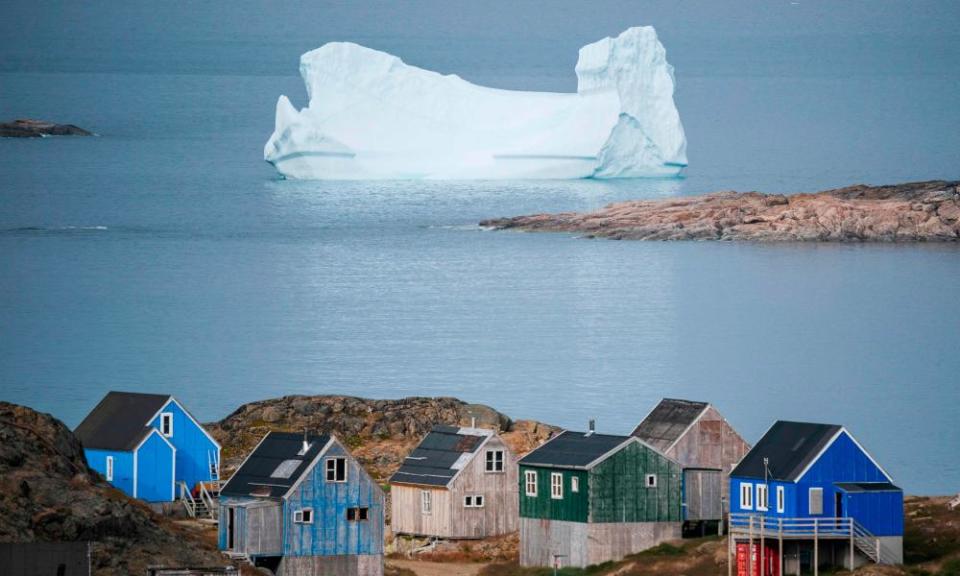Trump’s bid to buy Greenland shows that the ‘scramble for the Arctic’ is truly upon us

Donald Trump’s cack-handed attempt to buy Greenland, and the shirty response of Denmark’s prime minister, provoked amusement last week. But it was mostly nervous laughter. The US intervention shone a cold light on a rapidly developing yet neglected crisis at the top of the world – the pillage of the Arctic.
Like the late 19th-century “scramble for Africa”, when European empires expanded colonial control of the continent’s land mass from 10% to 90% in 40 years, the Arctic region is up for grabs. As was the case then, the race for advantage is nationalistic, dangerously unregulated, and harmful to indigenous peoples and the environment.
Until relatively recently, the eight so-called Arctic nations – Canada, Denmark, Finland, Iceland, Norway, Sweden, Russia and the US – maintained a broad consensus in favour of peaceful cooperation. Disputes like that between Canada and the US over the Northwest Passage and Russia’s claim to the underwater Lomonosov Ridge extending to the north pole, were regarded, literally, as frozen conflicts.
But then came the climate crisis and global heating – and the dawning realisation that the Arctic’s vast, mostly untapped resources were becoming more accessible. It is believed the Arctic contains around 13% of the world’s undiscovered oil reserves and 30% of its natural gas reserves, plus huge deposits of minerals such as zinc, iron and rare earth metals.
The melting ice means long-distance sea passages, such as the Northern Sea Route (NSR) from eastern Siberia to the North Atlantic, are increasingly navigable. Sailing a container ship from China to northern Europe via the NSR can shorten the journey time via the Indian Ocean and Suez canal by 10 days.
With the region warming at more than twice the global average, there is a growing military and strategic dimension. Russia, the largest Arctic nation by geography, is building new military installations and power plants. A Pentagon report in June stressed the need to maintain US “competitive military advantages”. China is in on the Arctic act, too.

In other words, rather than jointly tackle an emergency with existential global implications, major players appear hellbent on turning it to national advantage – and compounding it in the process. Trump’s Greenland gambit, with half an eye on mining and military bases, symbolised this blinkered mentality.
To make matters worse, intensifying competition is taking place largely without rules. Under international law, the north pole and the Arctic ocean surrounding it are not owned by any country. But coastal states all have 200 nautical-mile exclusive economic zones. They also maintain overlapping claims to extended continental shelf resources.
Several states regard areas of the Arctic seas as territorial waters and dispute international rights of passage. Russia has unilaterally introduced regulations for NSR shipping that others reject. The US refuses to ratify the UN’s Convention on the Law of the Sea. Meanwhile, China has declared itself a “near Arctic state” – a meaningless term that implies that it, too, has rights.
The chaotic consequences of this unruly race were glimpsed at this year’s annual Arctic council summit in Rovaniemi, Finland.
The non-binding policies of the council, which comprises the Arctic nations and indigenous peoples’ representatives, are traditionally agreed by consensus. But this year it was hijacked by Mike Pompeo, the US secretary of state. Ignoring the meeting’s aim of balancing climate challenges and development, Pompeo attacked Russia and China for “aggressive behaviour”, said collaboration did not work, and vetoed a summit communique because it mentioned climate change.
Russia announced an ambitious new programme to build Arctic ports, and expand an icebreaker fleet
Polarising US behaviour is partly influenced by concern that it is “late to the game” in the race for the Arctic, and that Chinese-Russian cooperation there reflects a bigger, overall strategic threat. The Pentagon report said Russia regarded itself as a “polar great power” and pointed to “new military bases along its coastline [and] a concerted effort to establish air defence and coastal missile systems”.
In April, Russia announced an ambitious new programme to build Arctic ports and other infrastructure, and expand an icebreaker fleet. Moscow also plans to dramatically increase NSR cargo shipments.
Meanwhile, China’s development with Russia of natural gas fields such as the Yamal peninsula and its civilian research efforts were harbingers of a “strengthened future Chinese military presence” in the Arctic potentially including nuclear submarines, the Pentagon warned: “China’s predatory economic behaviour globally may be repeated in the Arctic.”
The US navy is reportedly planning Arctic “freedom of navigation” operations similar to those in the South China Sea, using assets from the US 2nd Fleet that was relaunched last year to raise America’s profile in the North Atlantic and Arctic. Nato, to which five Arctic nations belong, is also taking an increased interest in the “security implications” of China’s activities, its secretary-general, Jens Stoltenberg, said this month. All this increases the risk of conflict.
China’s main focus at present is not military but on energy and resources, via investment in Arctic countries. In addition to Russian natural gas, it is prospecting for minerals in Greenland and has agreed a free-trade deal with Iceland to increase fish imports. It refers to the NSR as the “polar silk road” and there is talk of linking it to Beijing’s pan-Asian belt and road initiative.
Yet like any other country, where China’s business interests lead, enhanced military, security and geopolitical engagement will surely follow. Strategic competition by the Great Powers, greed for resources, a lack of legal constraints – and the aggravating impact all this new activity will have on the climate crisis – suggest the 21st century “scramble for the Arctic” can only end badly.

 Yahoo News
Yahoo News 